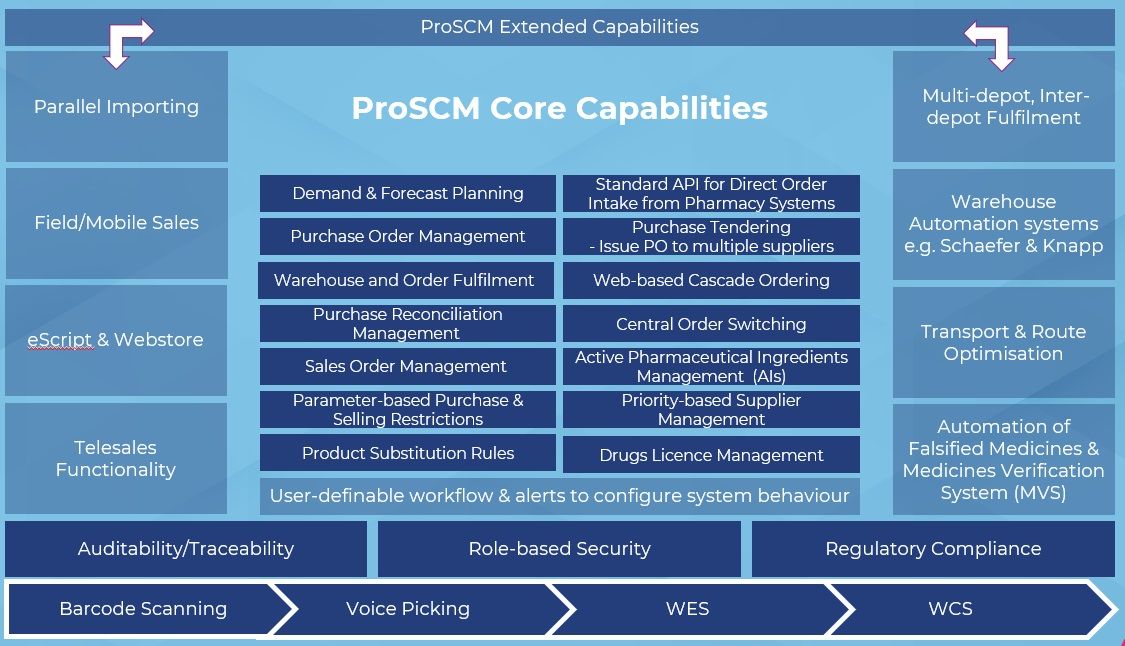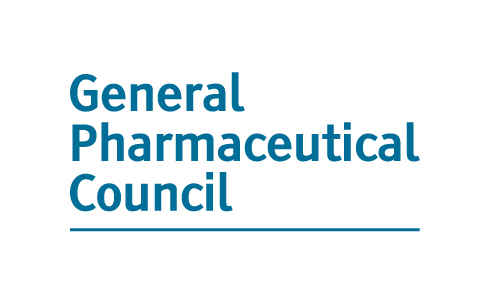Challenges for Modern Pharmaceutical Supply Chains. 1: Sourcing & Purchasing
)
Manufacturers, wholesalers, distributors, and other businesses involved with the pharmaceutical supply chain will be familiar with the benefits of supply chain management (SCM) systems. By ensuring data discipline, accuracy, and consistency an SCM system helps to optimise the flow of products from manufacturer to end user. These should be core attributes of any system but pharmaceutical supply chains face additional challenges that require enhanced data processing. These include flexible sourcing, rigorous regulatory compliance, anti-counterfeiting measures, product traceability, and verifiable provenance.
In this first article in a short series, we look at how SCM systems such as ProSCM Advanced Supply Chain Management Software from Principal Logistics Technologies (an Aptean company) applies advanced features to meet these sourcing and supply challenges.
-
Managing, sourcing and supplying stock:
One of the key roles of an SCM system is to manage the sourcing and supply of stock. Generating and sending purchase orders to suppliers can be a time-consuming burden. ProSCM helps to automate this vital process while ensuring orders are placed on time and with complete accuracy to help ensure everything arrives when needed. It also ensures the data discipline and consistency that help to enforce and audit regulatory compliance.
-
Demand planning:
Efficient demand planning leads to more efficient purchasing and supply. Systems such as ProSCM incorporate sophisticated tools including AI to analyse current and historic data to predict future demand. Users can configure their systems to make demand predictions using information from available sources such as stock in hand, on-order quantity, specific and average sales during definable periods, missed sales, and so on. They can capture this data in various formats from a wide range of sources including web portals, business applications, and telesales platforms using connections such as FTP, cascade, and built-in APIs.
-
Purchase automation:
Armed with better demand forecasts, ProSCM can streamline and automate purchasing with system-directed buying. For example, it can use the results of its analysis and predictions to generate a recommended order quantity (ROQ) for review. It can then use this information to configure a purchase order (PO) for a specific supplier and ensure it is issued automatically and in the correct format for simple processing and fast response.
-
Flexible purchasing:
Demand planning can also support increased flexibility in purchasing. For example, ProSCM can automatically generate a purchase order covering a particular requirement and issue it to multiple potential suppliers. This can help the business tender the contract and identify the supplier who is able to meet the requirement in the right timeframe and at best cost.
-
Regulatory compliance:
To maintain regulatory compliance and business continuity, businesses in the pharmaceutical supply chain often need to restrict from where supplies can be sourced. This might arise, for example, if a particular company is no longer licensed to manufacture or supply a specific product or ingredient. ProSCM incorporates system embedded buying restrictions to ensure that items can only be sourced from authorised suppliers. Users can configure the system to prevent it sending POs or placing orders with them. Using the system’s rules-based processes allows users to configure these restrictions very flexibly, for example by supplier, supplier group, quality group, site/facility, product, and even specific ingredients.
The ideal supply chain management solution:
ProSCM Advanced Supply Chain Management Software is specifically designed for distributors, wholesalers, and parallel importers operating in controlled environments such as pharmaceuticals, medical devices and healthcare. It enforces strict adherence to complex business processes that require full auditability and traceability. Users enjoy rich core functionality that can be enhanced with modular options to support and enable affordable and scalable business growth.
ProSCM is ideal for businesses faced with intricate purchasing and sales, stock handling and storage rules, and stringent compliance requirements. It can operate standalone or interface to any existing or planned accounting application.
To find out more about how ProSCM is used by pharmaceuticals, medical device and healthcare supply chain businesses read some of our customer case studies here and visit www.principalsystems.com for more information.
Next month we will look at the benefits of advanced SCM applications when stock arrives.




)
)
)
)
)
)
)
)
)
)
)
)
)
)
)

.png/fit-in/500x500/filters:no_upscale())
)
)
)
)
)
)
)
)
)
)
)
)
)
)
)
)
)
)
)
.png/fit-in/1280x9999/filters:no_upscale())
)
)
)
)
)
)
)


